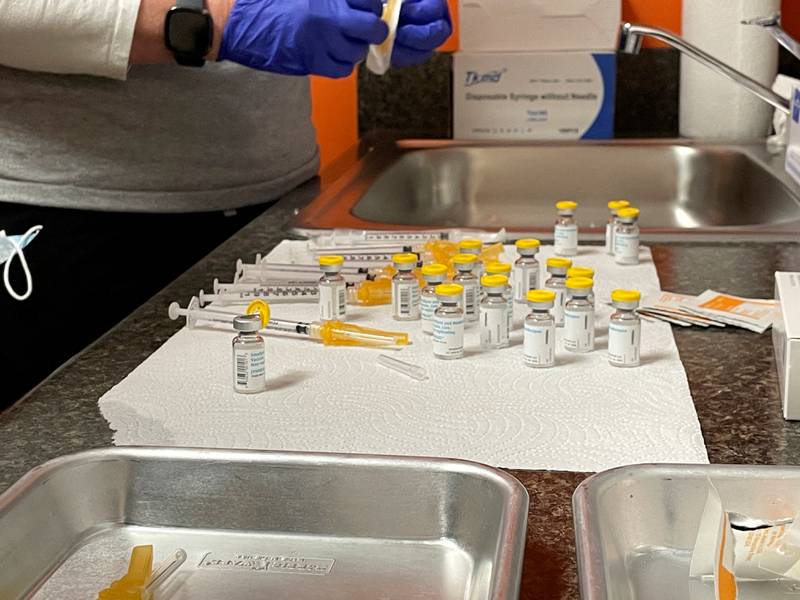WHO changes name of monkeypox to 'mpox'

The World Health Organisation on Monday announced that it will now be calling the monkeypox virus “mpox”, after calls rose to change the original name due to stigma.
“When the outbreak of monkeypox expanded earlier this year, racist and stigmatising language online, in other settings and in some communities was observed and reported to WHO,” the global health agency said in a statement.Read More : Monkeypox vaccine strategy shift yields more supply for some, hurdles for others A spread of cases was reported in non-endemic countries such as the UK and the US earlier this year, prompting the WHO director general to declare a global health emergency.
As thousands of cases were recorded among members of the LGBTQ community, vaccination campaigns were rolled out around the world. Few deaths have been reported and global cases have greatly decreased since the outbreak peaked in August.
The “monkeypox” name was assigned to the disease in 1970 after the discovery of the virus in monkeys in the late 1950s.
“New disease names should be given with the aim to minimise unnecessary negative impact of names on trade, travel, tourism or animal welfare, and avoid causing offence to any cultural, social, national, regional, professional or ethnic groups,” the WHO said.
Health departments in New York and San Francisco, two of the epicentres of the virus, changed the name of the virus to MPV and MPX, respectively.
“The previous name is an inaccurate and stigmatising label for a virus that is primarily affecting a community that has already suffered a long history of bigotry,” a statement from the New York City Department of Health read, referring to the LGBTQ community.
“Stigma is a shadow affliction that can follow viruses and drive people away from care, even when the illness itself is treatable.”
It is not yet known if New York and San Francisco will change their disease names to the WHO's new preferred term.
“When the outbreak of monkeypox expanded earlier this year, racist and stigmatising language online, in other settings and in some communities was observed and reported to WHO,” the global health agency said in a statement.
As thousands of cases were recorded among members of the LGBTQ community, vaccination campaigns were rolled out around the world. Few deaths have been reported and global cases have greatly decreased since the outbreak peaked in August.
The “monkeypox” name was assigned to the disease in 1970 after the discovery of the virus in monkeys in the late 1950s.
“New disease names should be given with the aim to minimise unnecessary negative impact of names on trade, travel, tourism or animal welfare, and avoid causing offence to any cultural, social, national, regional, professional or ethnic groups,” the WHO said.
Health departments in New York and San Francisco, two of the epicentres of the virus, changed the name of the virus to MPV and MPX, respectively.
“The previous name is an inaccurate and stigmatising label for a virus that is primarily affecting a community that has already suffered a long history of bigotry,” a statement from the New York City Department of Health read, referring to the LGBTQ community.
“Stigma is a shadow affliction that can follow viruses and drive people away from care, even when the illness itself is treatable.”
It is not yet known if New York and San Francisco will change their disease names to the WHO's new preferred term.
Source: www.thenationalnews.com
